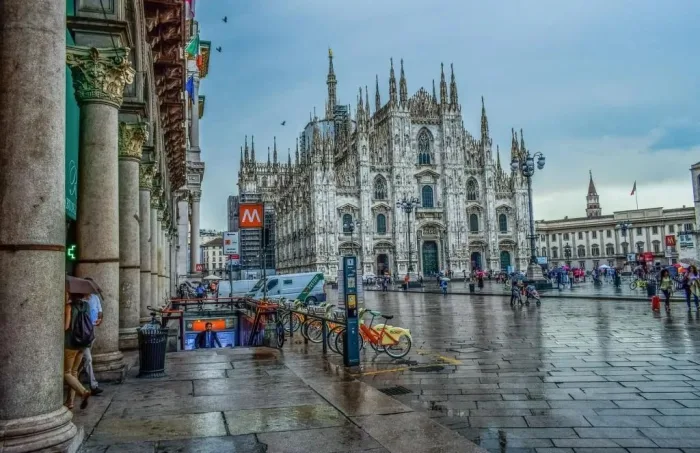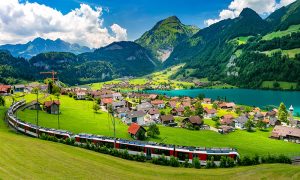When you fantasize about moving to Europe, Italy is often that heart-thumping destination: sunshine, art, slow life, coffee and Roman holidays. But actually setting foot in ItalyimmigrantsAfter the road, the real look of life is more complex and warmer than the movie.
In this article, I will combine my personal experience with a number of Chinese people who have settled in Italy from thePrices, security, social life and cultural integrationFour dimensions that take you into theImmigration to ItalyThe real daily life of theThe
I. Italy's price level: not "ridiculously expensive", but there are obvious differences between cities.
Many people mistakenly think that Italy is expensive, but it really depends on which city you land in.
-
Rome, Milan and other major citiesThe cost of living is indeed on the high side. A single person's monthly rent ranges from about 700 to 1,000 euros, and the cost of supermarket shopping is comparable to that of a first-tier city in China. A cup of coffee costs 1.2 euros, and a simple Italian meal costs about 15 euros.
-
(indicates contrast)Southern cities such as Naples, Sicily or the Puglia regionPrices are much more affordable. Renting an apartment can be as low as 400 euros, and everyday consumer goods are also cheaper.
-
Utilities cost an average of 100~150 euros per month, and heating expenses need to be kept in mind during the wet and cold winters in Italy.
Overall, if you can accept the Italian "non-luxury but comfortable" lifestyle and spend between 1,000 and 1,500 euros per month, the average family can live a decent life.
II. Security situation: overall stability, but the culture of thievery still needs to be guarded against
Italy is generally well policed, especially in residential areas, off-season tourism or small towns, and is hardly ever uneasy.
However, note the following two points:
-
Pickpocketing is a particular problem in the visitor areaThefts of cell phones and wallets are common in Rome and Florence. In Rome and Florence, cell phones and wallets are easily stolen from train stations, subways, or around tourist attractions.
-
Occasional burglaries in Chinese business neighborhoodsThe installation of a security system is recommended, especially for homeowners who run a cash business.
The Italian police are not efficient and may just go through the motions after reporting a crime. Migrants should therefore take daily precautions - keep your backpack close to your body, stay away from crowds, and avoid exposing your valuables.
III. Socialization and pace of life: slow life is real, but socialization needs to be proactive
Italians are warm but slow. They are more than willing to greet you, chat about the weather, and tell jokes, but it takes a lot to really establish thedeep-rooted relationshipYou need time.
-
Italian personEmphasis on family and circle of friendsThe relationship is seldom "casual", but more often built on festivals or formal invitations.
-
Most Italian cities socialize aroundCafes, Weekend Markets & Local FestivalsExpand.

-
Language is the key to integration. Even if you only know a few simple sentences, you can gain more respect and opportunities.
It is recommended that new Chinese immigrants participate in local language classes and community activities, and that their children attend public schools to help their families enter the mainstream social circle more quickly.
IV. Cultural integration: the challenge of differences, but also a form of growth
Culture shock is inevitable, especially coming from the fast-paced cities of China to the "tomorrow" of Italy.
-
The Italians are very particular about the rituals of life. Closing the store at noon, slowing down the pace, and not opening the stores are a kind of "cultural torture" for those who are accustomed to an efficient life.

-
But it also forces us to re-examine what real life is. It's not the convenience of being open 24 hours a day, butDinner time with the family, leisurely walks through the olive groves.The
-
Once you get used to it, you'll realize that Italian "slowness" is not procrastination, but rather a respect for the true nature of life.
In summary: Reality is not perfect, but the days in Italy have temperature
Immigration to ItalyIt is not an escape, but a choice for a new way of life. It is not a paradise, but it can be a real "home" for those who are willing to understand the culture and adapt to the differences.
You may feel lonely, anxious, or even tempted to give up in the first few months, but as the language improves and relationships are built and routines become familiar, you'll realize:Life as an immigrant in Italy, slow but beautiful and true.






